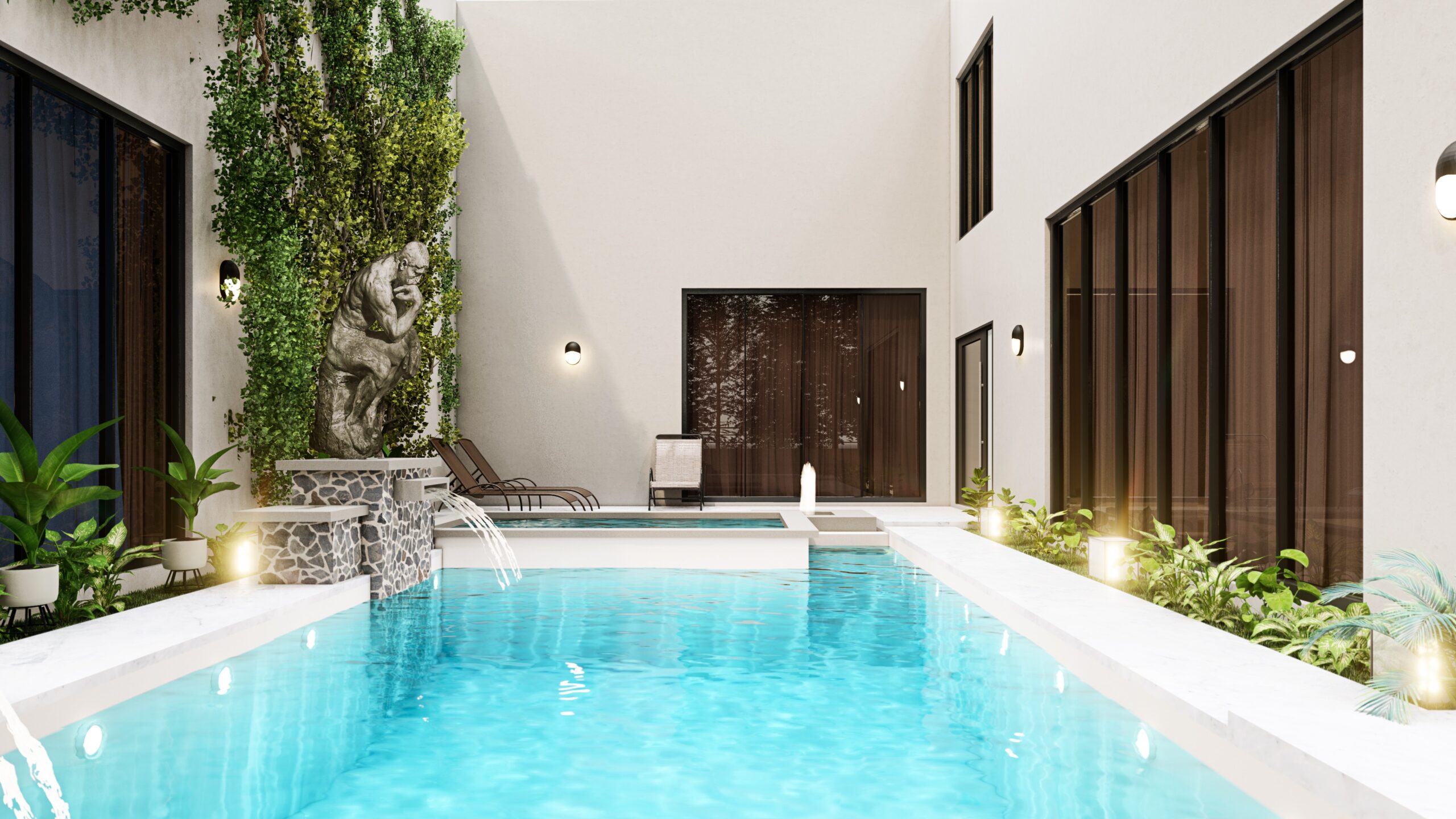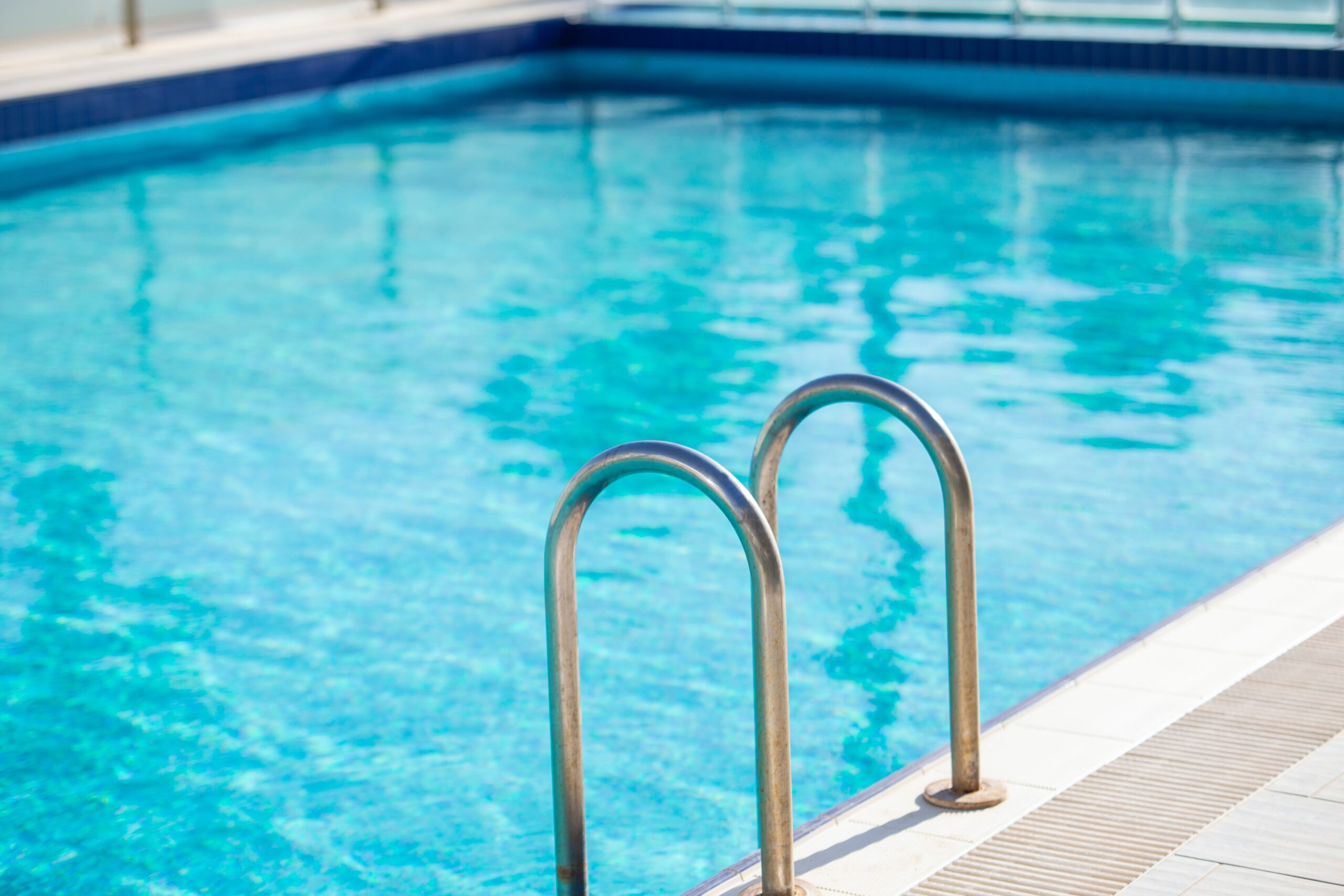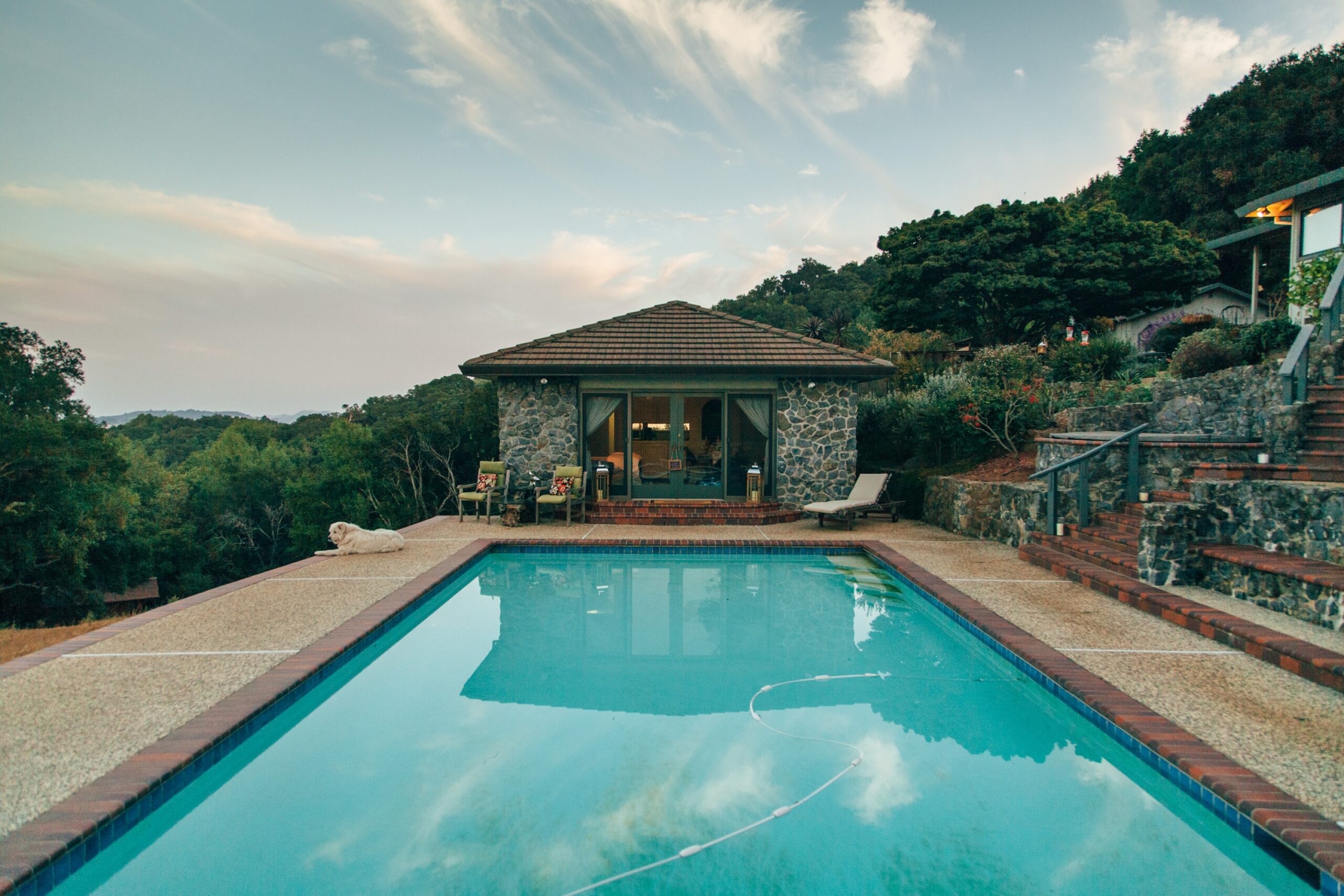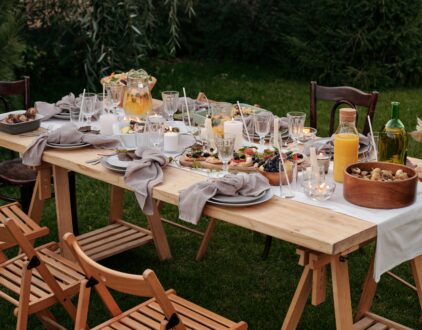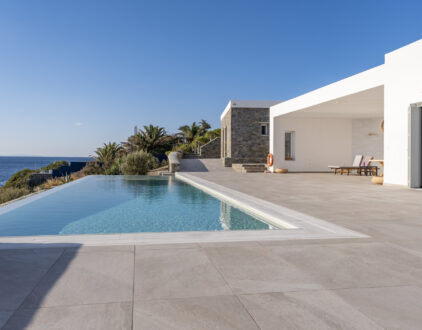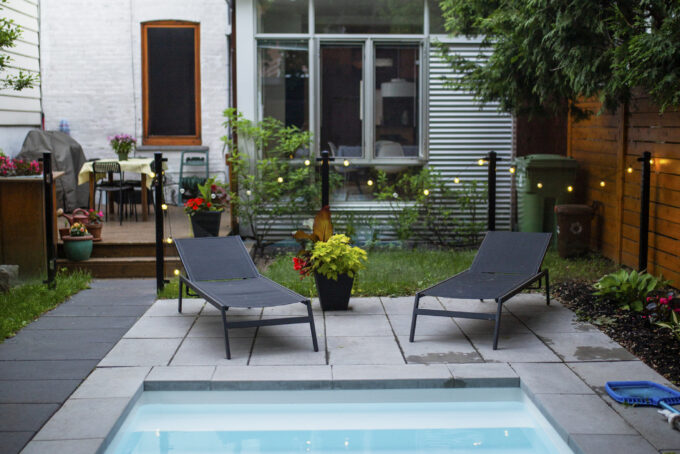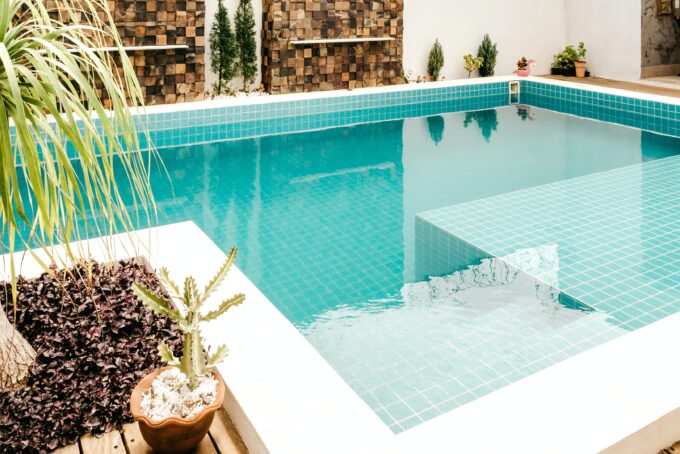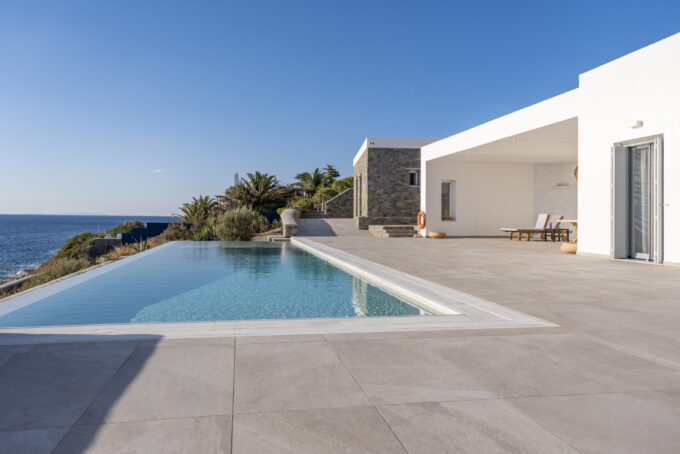Everyone loves having a nice place to relax on a hot day. If you have a pool or plan on getting one, you’ve probably heard of the term pool coping. Pool coping refers to the edge of the pool around the perimeter. If you have ever sat on the edge of a pool with your feet dangling in the water, then sure enough you are sitting on the coping. This section of the pool serves as a protective barrier between the pool and any surrounding areas like the yard, drains, grass, etc.
So how exactly does pool coping work? There are many different types of materials to use for pool coping. You can use different shapes like squares or triangles and different types of inground styles such as bullnose, top mount, square edge, and more. Pool coping is what provides that finished look to the pool making it aesthetically pleasing to the eye. It is designed to support the bond beam, preventing water and debris from getting into the pool shell and causing damage. Pool coping is one of the many parts of maintaining a pool.
Pool Coping Materials To Use
There are a ton of different pool coping materials that can be used. You’ll want to choose materials depending on your style, home aesthetic, outdoor conditions, and budget. Concrete coping is easy to install and tends to be a more affordable option. It also comes in many different textures, shapes, styles, and colors. Marble coping will leave the area looking glossy, smooth, and sophisticated. It lasts a long time and tends to be more expensive than other options.
Brick is another pool coping style that is low maintenance and versatile in colors and styles. It’s long-lasting but isn’t easy to replace if it cracks. Paver is a very popular choice for pool coping because it is easy to replace if it cracks and comes in many different colors, textures, and finishes. Sandstone tends to be the least popular option, as it retains heat, does not have a sealant like other options, and is different in texture.
When you go to the pool, bluestone might be the pool coping that you see most often. This style not only comes in the color blue but is in other neutral shades. You can customize your pool by picking different shapes like squares, rectangles, and triangles.
Costs of Materials
The cost of pool coping depends on the type of materials used, design, color, and labor cost. On average, it can range from $30 to $60 per linear foot. If you decide to go with a company, the cost can vary. Materials like marble and sandstone tend to be more expensive while concrete, paver, and brick are more affordable.
Installation for Pool Coping
There are different installation methods for pool coping. It’s important to hire a professional, as pool coping is not a typical DIY project. Some materials require mortar or adhesive while others have a specific system for installation. Having a slip-resistant material is important to prevent injuries, especially for kids, disabled people, and the elderly. If you plan on making good use of your pool, this is important for safety and there is less risk involved. Choose pool coping that is not only aesthetically pleasing but will also keep you and others safe.
popular posts
Spaces
Whether it’s luxury or ease, every area of your home should be as fabulous and unique as you.
FOLLOW ALONG ON INSTAGRAM
#homeandtexture
Find us on social for more home inspiration where culture, personal style, and sophisticated shopping intersect to help you create a home where you love to live.

